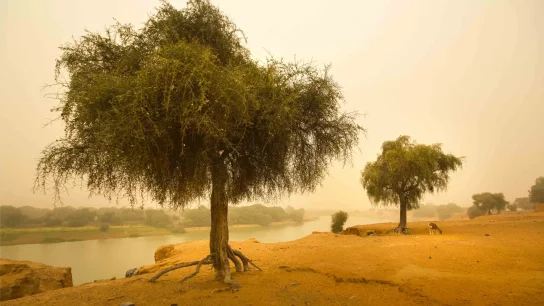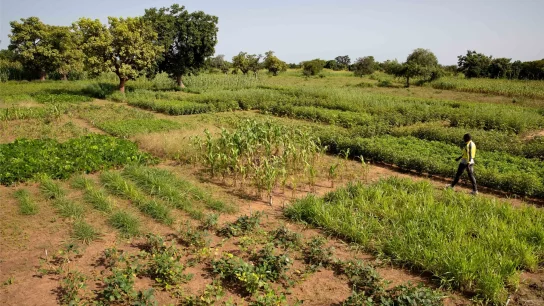What Is Agroecology?
As defined by the FAO agroecology is a holistic approach that “simultaneously applies ecological and social concepts and principles to the design and management of food and agricultural systems. It seeks to optimise the interactions between plants, animals, humans, and the environment while taking into consideration the social aspects that need to be addressed for a sustainable and fair food system.”
How can agroecology help address global challenges?
West-Africa will be one of the most affected regions by climate change. The increase in temperatures and the decrease of total rainfall will lead to a crop yield decrease. Recent studies have shown that agricultural systems are more resilient and ensure better a decent level of performance after extreme climatic events when inserted in complex landscape mosaics, present high levels of biodiversity, local varieties are used, the systems are managed with organic matter rich soils and/or water conservation-harvesting techniques are used. Most of these characteristics result and can be achieved with the use of more agroecological agricultural practices.


What does agroecology look like?
Agroecology can take on many forms. For example, we can integrate trees or livestock in crop field (also called agroforestry), field crops and livestock can be used rotationally (mixed-farming systems), use local genetic varieties, and diversify crops compared to monoculture productions, manage soils to increase organic matter and conserve water. All these practices integrating various elements (trees, crops and or animals, coupled with soil management) lead to a more collaborative and complex system and are practices that follow an agroecological approach.
What are CIRAWA’s agroecological approaches?
CIRAWA is working on innovative agroecological approaches using the four strategies: valorisation of agro-wastes for vermicomposting and bio-based fertiliser production; production of high-quality seeds of staple crops and vegetables; saline soil reclamation methods through phytoremediation; soil fertility, water and crop management practices.